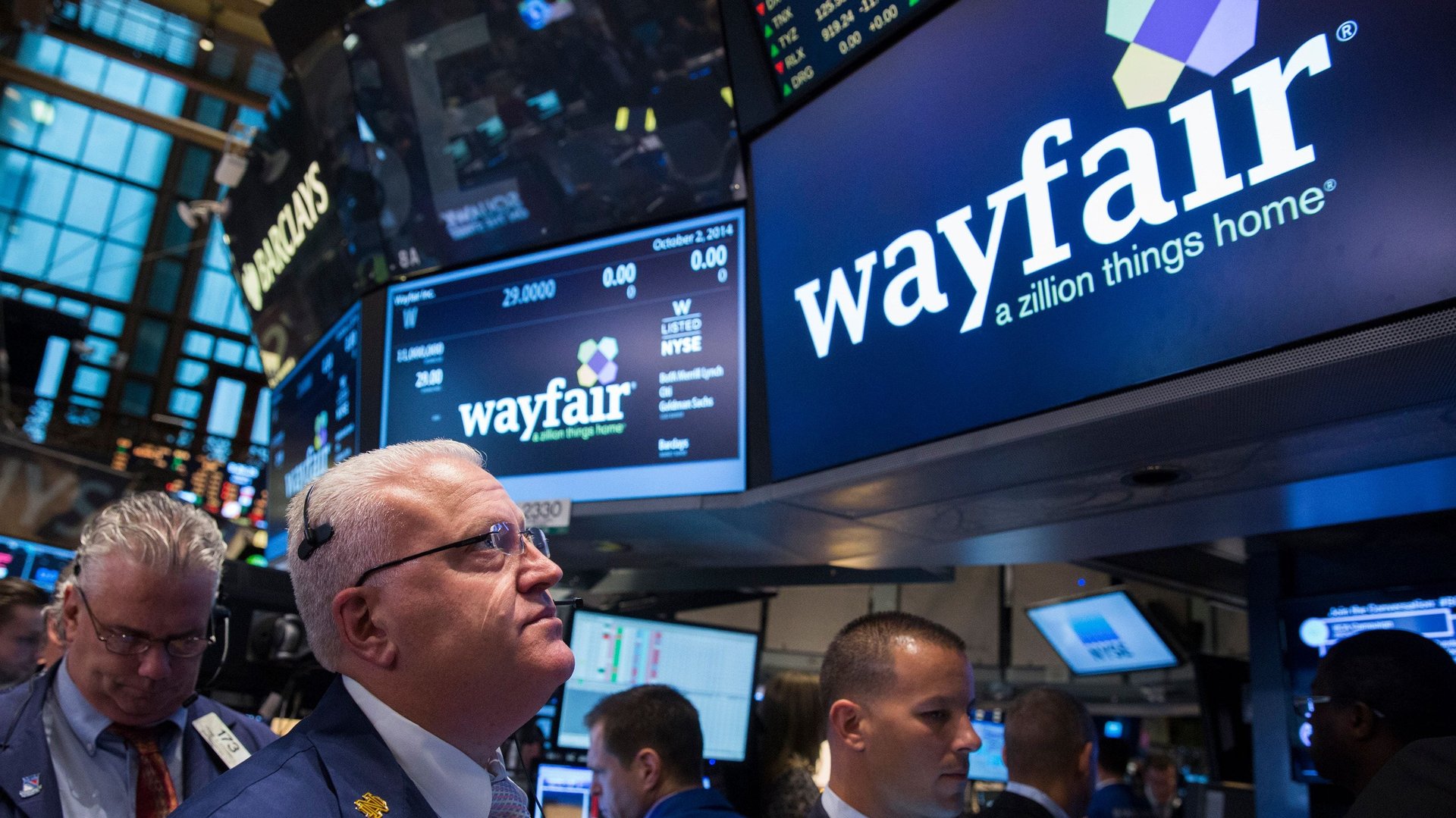The Supreme Court just caused stocks of online retailers to tumble
Shares of large internet sellers tumbled in midday trading on June 21 after the US Supreme Court said those merchants could be required to collect sales tax in US states where they don’t have a physical presence.


Shares of large internet sellers tumbled in midday trading on June 21 after the US Supreme Court said those merchants could be required to collect sales tax in US states where they don’t have a physical presence.
Amazon, Wayfair, eBay, Etsy, and Overstock.com all fell in morning trading, with Wayfair at one point down by 8%. Big-box retailers like Walmart, Target, and Costco, on the other hand, recorded modest gains.
The Supreme Court decision came after South Dakota sued online retailers Wayfair, Overstock.com, and Newegg for violating a 2016 law requiring out-of-state merchants to collect a 4.5% sales tax if they did more than $100,000 in annual sales or had more than 200 transactions in the state. The decision reverses a 1992 Supreme Court ruling in Quill vs. North Dakota, which said mail orders from out-of-state companies didn’t have to add sales tax.
Many internet retailers had leaned on the Quill decision to avoid paying sales tax in states where they didn’t have a physical presence. South Dakota has estimated it loses up to $50 million a year in sales tax on online purchases; a 2017 report from the federal government found that US states collectively miss out on as much as $13 billion in unpaid tax on internet sales, according to Reuters.
Not having to pay state sales tax also gave many internet retailers an edge on their brick-and-mortar counterparts, as sales tax contributes to the overall purchase price of a good. The Supreme Court decision clears the way for states to unwind that competitive advantage.